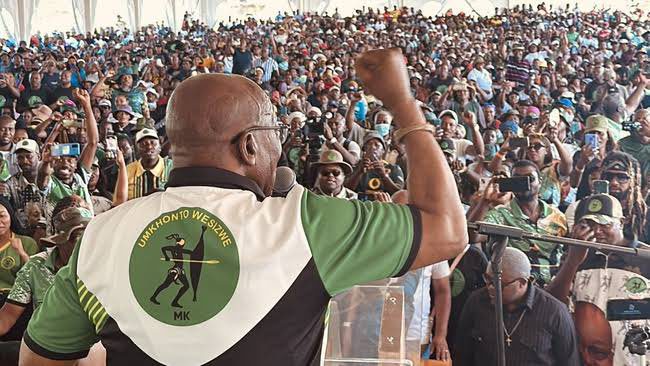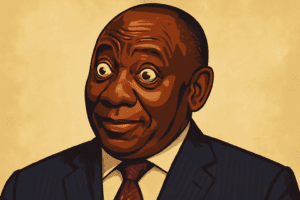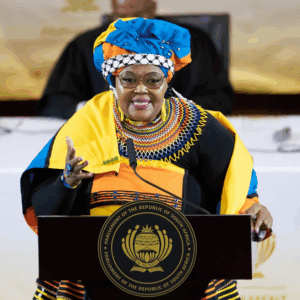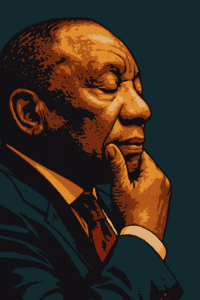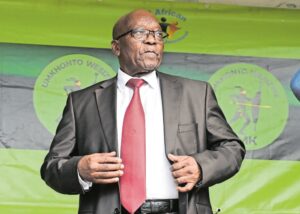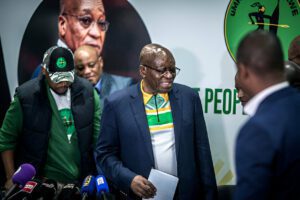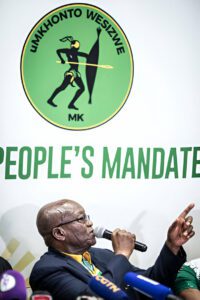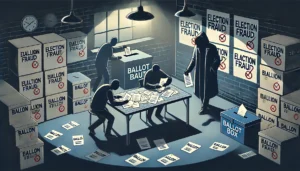In a notable legal development, the Electoral Court recently ruled in favor of the uMkhonto weSizwe (MK) Party, affirming the Independent Electoral Commission’s (IEC) adherence to legal standards during the party’s registration process. This ruling came as a blow to the African National Congress (ANC), which had pursued legal action against the MK Party—associated with former president Jacob Zuma—arguing that it had not followed proper legal procedures in its attempt to register with the IEC.
Legal Findings and Court’s Decision
Judge Leobogang Modiba, presiding over the case, found the ANC’s application lacking in merit, deeming it neither urgent nor within the court’s jurisdiction to consider, as reported by The Citizen. Modiba highlighted the ANC’s failure to justify its delay in seeking legal recourse, stating,
“The ANC failed to explain why the decision was taken for its next court action. The ANC should have instituted these court actions within three days of the MK party’s registrations.”
In a unanimous judgment, the court dismissed the ANC’s application, stating:
“We find there is nothing unlawful about registration of MK party by the deputy chief electoral officer,”
The judgment underscored the ANC’s missed opportunities to challenge the MK Party’s registration and pointed out that any attempt to deregister the MK Party at this juncture would be futile. The court also noted that the ANC’s inaction until Jacob Zuma’s announcement of joining the MK Party played a role in its decision. The MK Party was officially registered by Jabulani Khumalo in September of the previous year.
Implications and Upcoming Legal Challenges
This ruling precedes a forthcoming legal encounter in the KwaZulu-Natal High Court in Durban, where the ANC and MK Party will contest issues of alleged copyright infringement concerning the party’s name and logo. The ANC asserts that it holds the trademark to MK, reflecting its historical significance as the ANC’s military wing over sixty years ago.
The decision permits the IEC to direct its attention towards election preparations, marking a significant moment in the ongoing legal battles between these political entities. This was characterized as the initial phase in the court disputes between the ANC and the MK Party, with further proceedings set to unfold in the High Court in Durban, addressing the controversy over the name and logo usage of MK.
Reflecting on the Legal and Political Landscape
This case highlights the intricate legal and political dynamics at play within South Africa’s electoral process and party registrations. The court’s decision underscores the importance of adhering to procedural timelines and the potential implications of political maneuvers on legal standings.
Breaking: The ANC has failed to remove the MK party from the ballot.
In summary the judges said “stopping taking a chance”. pic.twitter.com/skBo17W37K
— Africa Research Desk (@MightiJamie) March 26, 2024
What questions does this case raise about political strategy and legal tactics in the context of party registrations and electoral competitions?
This development prompts us to consider the broader implications for political strategy and the significance of timely legal action in the sphere of political party registration and competition. How do these legal outcomes affect the balance of power and the landscape of political alliances and rivalries in the lead-up to elections?

